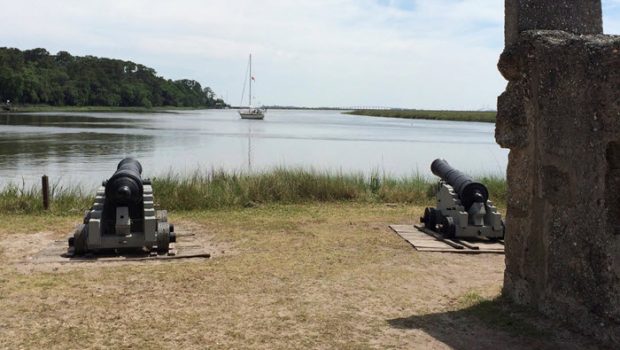Legislation restricts the right to anchor
Published on February 7th, 2020
Boat Owners Association of The United States (BoatUS), as the nation’s largest organization of recreational boaters with more than a half-million members, is on a mission. When the freedom of boating is, in their view, unreasonably restricted, they become a very squeaky wheel.
In a letter sent recently to Georgia Governor Brian Kemp, BoatUS urges the governor to reconsider regulations recently put in place restricting overnight anchoring within 1,000 feet of any structure, such as public and private docks, wharves, bridges, piers and pilings, except in areas near marinas.
The national advocacy, services and safety group also asks recreational boaters to send a message now to the state of Georgia regarding the new prohibitive anchoring law.
With 16,000 BoatUS members in the state, BoatUS Vice President of Government Affairs Chris Edmonston says in the letter that the new rule effectively removes from public use a significant portion of the state’s waters, representing a departure from the long-held public trust doctrine.
With little notice or engagement with boating stakeholder groups, the Georgia Legislature approved, and the governor signed, House Bill 201 in the 2019 session. This legislation directs the Georgia Department of Natural Resources (DNR) to develop rules regarding the anchoring of vessels in estuarine areas of the state.
Georgia DNR then proposed a rule that raised significant concerns with the boating community, including BoatUS and the grassroots group Save Georgia’s Anchorages, which was created in response to the draconian law.
Said Edmonston, “This 1,000-foot offset needlessly eliminates anchorages all over the state. It will affect numerous boaters, many of whom transit Georgia waters as part of the annual migration along the Intracoastal Waterway. There is no reasonable safety or waterway-management reason for taking such a significant swath of state waters from the boating public.
“Boating and fishing are the second largest outdoor recreational activity in Georgia, bringing in well over $500 million a year in economic activity. Eliminating scores of anchorages will put a severe damper on this very important economic driver to many coastal areas that gain from boater spending.”
Edmonston notes DNR did create so-called “Marina Zones” that allow boaters to anchor as close as 300 feet to marinas or facilities that provide fuel, dinghy access, provisions, vessel maintenance or other services, regardless of whether other structures exist nearby.
“This can only lead to the conclusion that the reason for the greater offset from privately owned structures outside these zones was to provide waterfront landowners with near exclusive use and enjoyment of our shared waterways,” said Edmonston.
BoatUS believes the final rule runs counter to the public trust doctrine as codified in Georgia Code § 52-1-2 (2015) which states: “The State of Georgia, as sovereign, is trustee of the rights of the people of the state to use and enjoy all tidewaters which are capable of use for fishing, passage, navigation, commerce, and transportation, pursuant to the common law public trust doctrine.” BoatUS notes the anchoring of vessels is an integral part of navigation.









 We’ll keep your information safe.
We’ll keep your information safe.